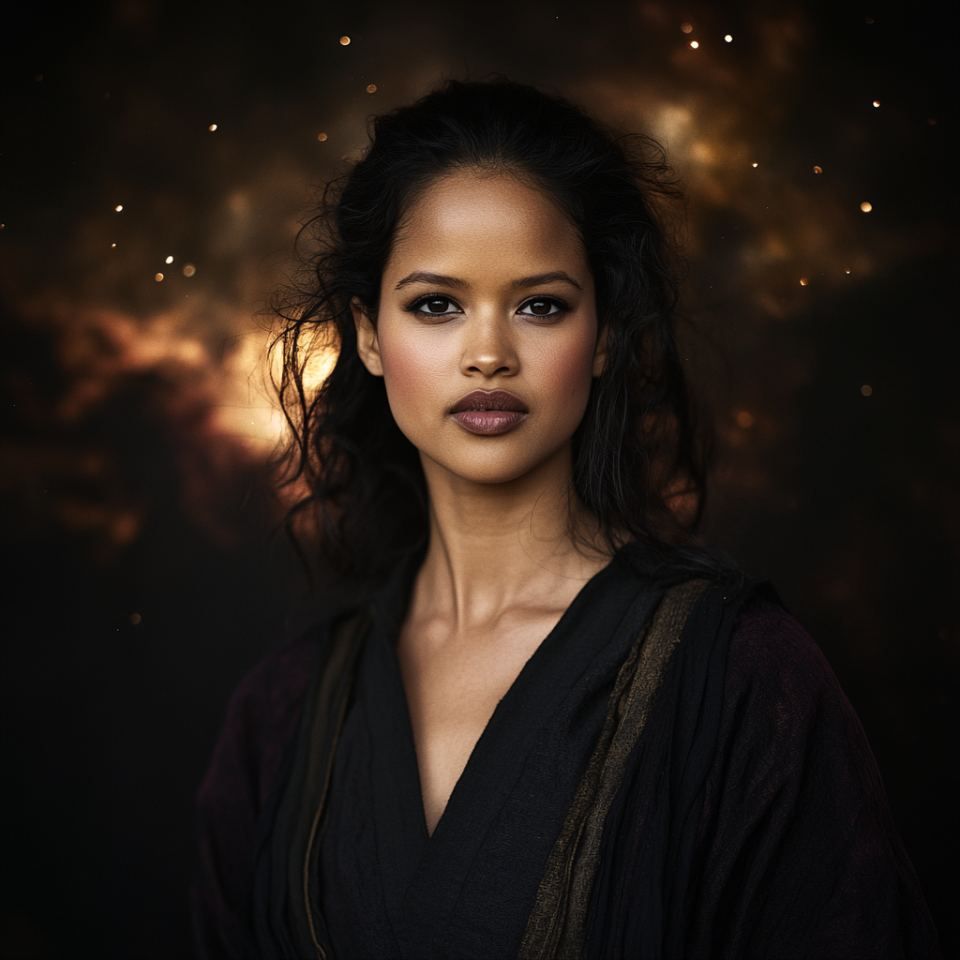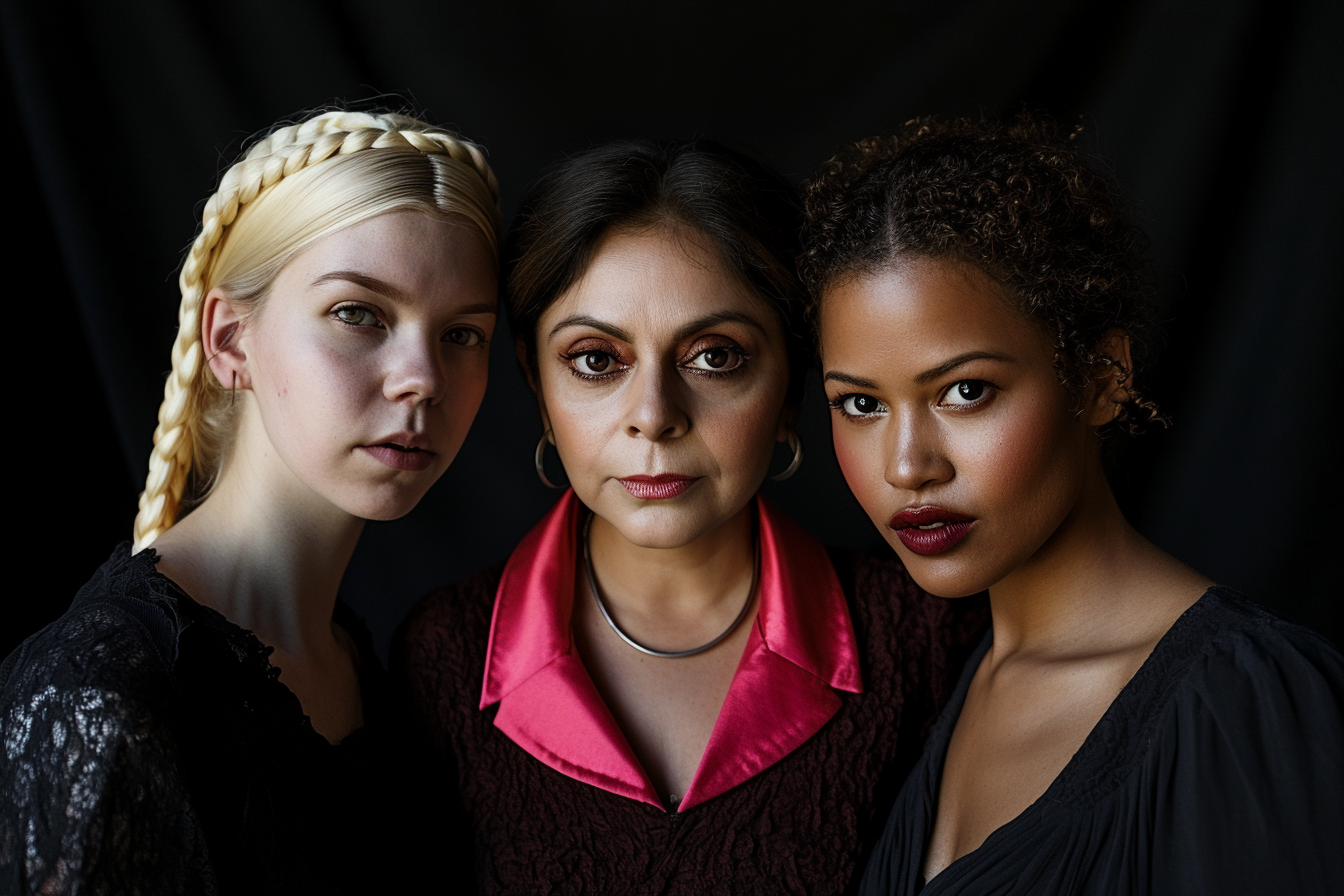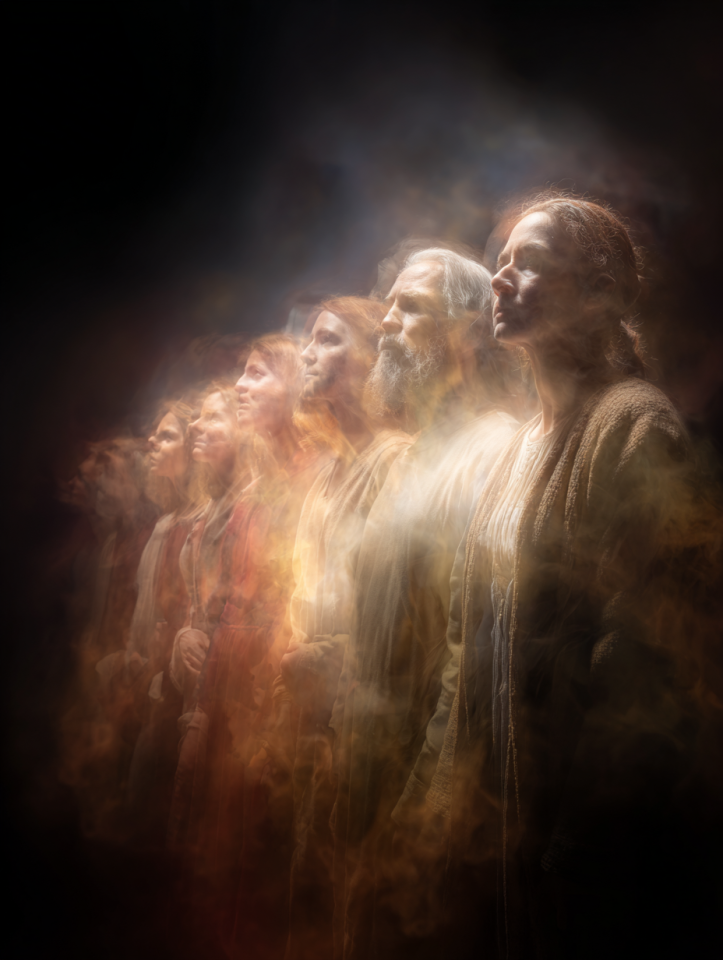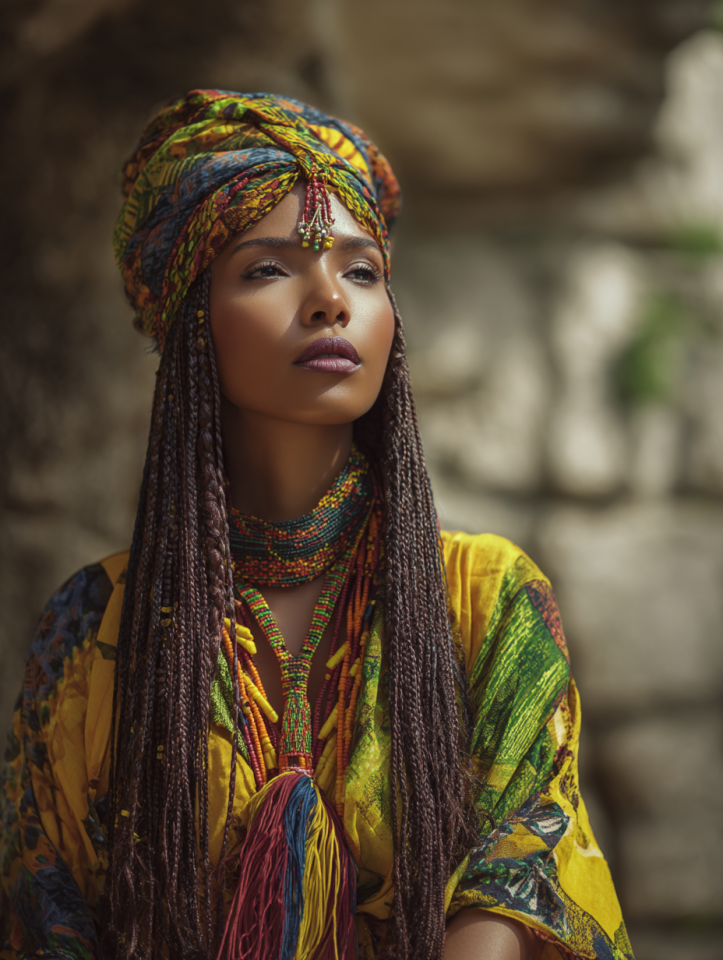Kārta (KAHR-tah)
Primal Unbound Prihleudhōs Deity
Kārta (a.k.a. Atropos, Skuld, Sudice, the Final Knot, She Who Seals the Thread)
Where Laima begins and Dēkla tends, it is **Kārta who concludes**. The eldest — or perhaps the youngest — of the fate sisters, she appears not at the start of life, nor in its seasons, but at the moment when all stories close. To some, she is feared. To others, revered. But in truth, **Kārta is not death — she is completion**. She is the silent one at the threshold, the unseen presence when a last breath is drawn, the invisible hand that ties off the final knot in the fabric of being. Her thread does not fray, nor break — it is clipped cleanly and placed aside, never wasted.
She is remembered across mythic memory as **Atropos**, the cutter of life’s thread; as **Skuld**, who represents what must come; and as the **Sudice**, Czech and Slovak goddesses who determine the end of a human fate. In Baltic tradition, Kārta governs the fate of adults, especially those nearing the close of life’s pattern — warriors, widows, exiles, and elders. She appears not to punish, but to ensure that every life leaves behind meaning. Her realm is one of memory, legacy, and irrevocable truth.
Though she is rarely invoked directly, those who deal in endings know her well: executioners who weep in private, hospice nurses who hold cold hands, archivists preserving the stories of the dead. She is present in endings both literal and symbolic — the dissolution of relationships, the fall of empires, the burning of letters never sent. And yet, her essence is not sorrow. It is *precision*. Kārta holds the knowledge that nothing lasts forever, and that this, too, is sacred.
Those who accept her find release. Those who resist her still pass through her hands. For even gods cannot untie the thread once Kārta has bound it. She is not cruel, but she is unyielding. And in her stillness, there is grace — the kind that can only come when nothing more must be said.
Physical Description
General Physical Condition
Kārta manifests in forms that echo stillness and inevitability. She is tall, austere, and statuesque, often dressed in garments the color of basalt, iron, or snow just before it melts. Her hair is dark — obsidian, ink, or raven-feather black — typically bound in a tight coil or left loose in windless air. Her skin may be pale as bone or gray as ash, but always smooth, untouched by time. Her eyes are jet black or the deep violet of twilight. Most unsettling, however, is that her gaze does not waver. It does not blink. It does not judge.
When seen by mortals, she is often mistaken for a noblewoman in mourning or a still shadow by the door. She wears no crown, bears no blade, yet her presence makes even the bold step back. The only adornment she carries is a single thread looped around her finger — gold, red, or white, depending on the life she closes.
Mental characteristics
Sexuality
Kārta feels no pull toward romantic or sexual bonds. Her intimacy lies in her constancy. She is the final companion of all beings, arriving at the end regardless of how they have lived. Her closeness is universal and inevitable, but not personal. She does not choose; she does not love. And yet, she is there for all. Some find her cold, others merciful — but her presence is always without condition. Her love is in the assurance that all things are finite, and therefore, meaningful.

Species
Realm
Date of Birth
Evos Todhchaí
Gheydh
Gheydh
Family
Children
Sex
Female
Sexuality
Celestiaphilic
















